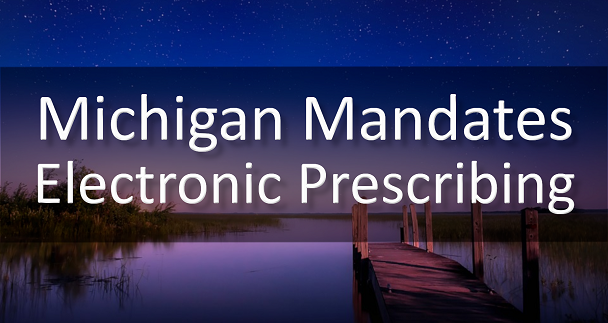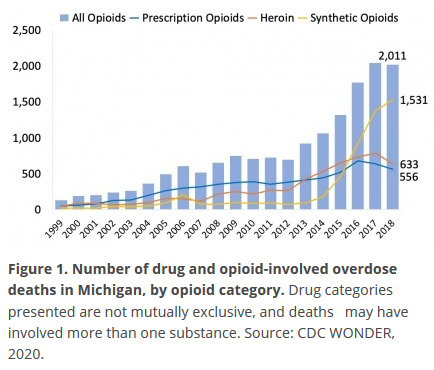Posted by MDToolbox
on
• Comments
(0)

Michigan Governor Gretchen Whitmerrecently signed her State’s electronic prescribing mandate into law. Michigan House Bill 4217mandates healthcare providers to electronically prescribe all prescriptions with an effective date of October 1st, 2021. This bill was initially introduced in 2019 with an effective date of January 1st, 2021. The bill took until summer of 2020 to pass after being amended several times in both the House and Senate.
The Michigan mandate contains several exceptions in which electronic prescribing is not required, but all are standard to what other states have enacted. The mandate also makes mention of a waiver system but has no details on specifics other than the waiver is not to last for more than 2 years.
One unique section to the electronic prescribing legislation is that the mandate only takes effect if both SB248 and SB254 are also enacted into law. Both additional bills have also been enacted.
- SB248 is a bill related to regulation changes for pharmacists including the dispensing of medications. The bill covers new requirements and penalties for non-compliance. The bill also discusses licensing for acupuncturists.
- SB254 is a bill related to legal responsibilities of health care employees and their interactions with patients. The bill establishes that the Michigan Department of Health may investigate allegations of misconduct and pass along their findings to the appropriate disciplinary subcommittee.

Michigan is currently well above the national average for opioid-related overdose deaths, with 20.8 deaths per 100,000 people while the national average is 14.6 deaths. Prescription opioid overdose deaths continued to gradually rise until 2016, then have been on a slight downward trend since then. Heroin and synthetic opioid deaths have continued to rise since the early 2000’s with a sharp rise in synthetic opioid use beginning in 2014.[1]
The gradual decline in prescription opioid overdose deaths in Michigan might be in part due to the State legislature enacting a 10-bill package to attempt combatting the opioid epidemic in their state in Demember 2017. The bills covered a wide range of changes for Michigan residents and healthcare professionals. Among the requirements are:
- Mandatory patient education when being prescribed opioids
- Patient-provider relationship requirements
- PMP check requirements
- Drug dispensing restrictions
- Opioid education in the public school system
Michigan currently has a 44.9% prescriber enablement for electronic prescribing of controlled substances, below the national average of 51.1%. Pharmacy enablement in Michigan for EPCS is 95.3%, which is also below the national average of 97.1%.[2] MDToolbox encourages providers not to wait until the last minute to setup electronic prescribing!
Please see our website for other states that have either passed or have pending legislation that mandates electronic prescribing. MDToolbox looks forward to providing tools and resources to assist providers throughout Michigan to ease the transition and help our customers combat the opioid epidemic. With MDToolbox, providers have access to tools such as Electronic Prescribing of Controlled Substances (EPCS) and convenient on the go e-prescribing with our mobile app! We offer a free 30 day free trial, so Contact us for more information!
[1]https://www.drugabuse.gov/drug-topics/opioids/opioid-summaries-by-state/michigan-opioid-involved-deaths-related-harms
[2]https://surescripts.com/enhance-prescribing/e-prescribing/e-prescribing-for-controlled-substances/